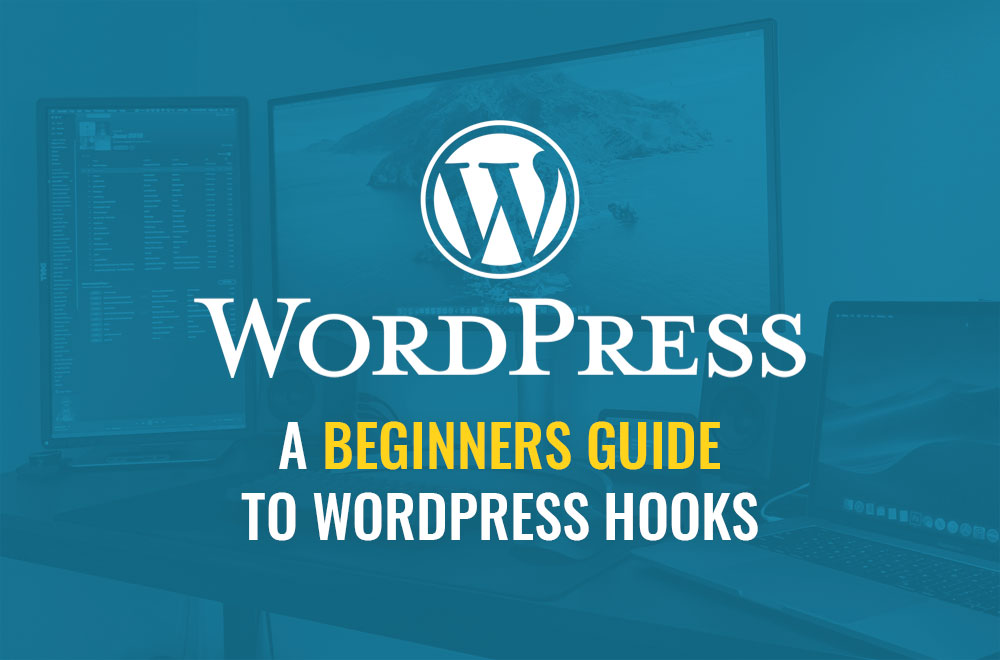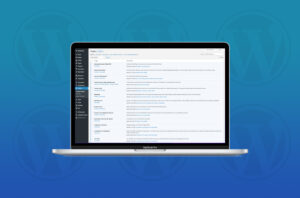Hook into WordPress and customise your site like a pro!
WordPress hooks are the key to unlocking the full potential of your website. Use them to customise and extend the functionality of your site like a pro!
In WordPress and WooCommerce, hooks and filters are two ways to change or customise the default behavior of a website or plugin.
Hooks allow you to “hook into” the code of a plugin or theme at specific points, called “actions” and “filters,” and execute your own code. There are two types of hooks:
- Actions: Actions allow you to add custom code at specific points in the WordPress or WooCommerce code. For example, you might use an action hook to add a custom banner to the top of your website or to send an email when a user registers for an account.
- Filters: Filters allow you to modify existing data in WordPress or WooCommerce. For example, you might use a filter hook to change the default “Thank you” message that appears after a customer completes an order, or to change the price of a product before it is displayed on the website.
In short, hooks allow you to add custom code or change existing data at specific points in the WordPress or WooCommerce code. They are a powerful tool for customizing and extending the functionality of your website or plugin.
What are the benefits of using WordPress hooks?
There are several benefits to using hooks in WordPress:
- Customisation: Hooks allow you to customize and extend the functionality of your WordPress website or plugin without modifying the core code. This is useful because it allows you to make changes to your website without risking breaking the underlying code or losing your changes when the code is updated.
- Reusable code: Because hooks allow you to add custom code to specific points in the WordPress code, you can create code snippets that can be used on multiple sites or projects. This makes it easier to reuse code and saves time when building websites.
- Maintainability: Using hooks can help you maintain your website or plugin more easily because it allows you to make changes without modifying the core code. This means that you can update your website or plugin without worrying about losing your customizations.
- Extensibility: Hooks allow you to add custom functionality to your website or plugin without modifying the core code. This makes it easier to extend the functionality of your website or plugin over time.
Do you need a developer to implement WordPress hooks?
In general, implementing WordPress hooks does require some coding knowledge, as it involves writing custom code that is executed at specific points in the WordPress code. However, it is possible for non-developers to learn how to use hooks and implement them on their own websites or plugins.
If you are comfortable with writing code and have some basic knowledge of PHP (the programming language used by WordPress), you should be able to learn how to use hooks and implement them on your own website.
If you are not comfortable with coding or do not have the time to learn how to use hooks, you can always contact me (cue the self promo!) to implement them on your website. A developer can write the necessary code and ensure that it is implemented correctly, saving you time and effort.
What is a quick example of a WordPress hook for WooCommerce?
function custom_checkout_message() {
echo '<p>Thank you for your order!</p>';
}
add_action( 'woocommerce_before_checkout_form', 'custom_checkout_message' );
In this example, we are using the woocommerce_before_checkout_form action hook to execute our custom code (the custom_checkout_message function) before the checkout form is displayed. The code inside the function (echo ‘<p>Thank you for your order!</p>’;) will be executed and the message “Thank you for your order!” will be displayed at the top of the checkout page.
This is just a simple example, but you can use hooks in a variety of ways to customize and extend the functionality of your WooCommerce store.
Where can i find resources for WordPress Hooks and Woocommerce Hooks?
There are many resources available online for learning about WordPress and WooCommerce hooks, including:
The WordPress Codex: The WordPress Codex is the official documentation for WordPress, and includes information on using hooks and customizing WordPress. You can find the Codex at https://codex.wordpress.org/.
WooCommerce Developer Documentation: The WooCommerce developer documentation includes information on using hooks to customize and extend the functionality of your WooCommerce store. You can find the documentation at https://docs.woocommerce.com/.
I hope this article helps elevate your website with the power of WordPress hooks. If you interested in learning more about hooks or WordPress development, please don’t hesitate to contact me.




